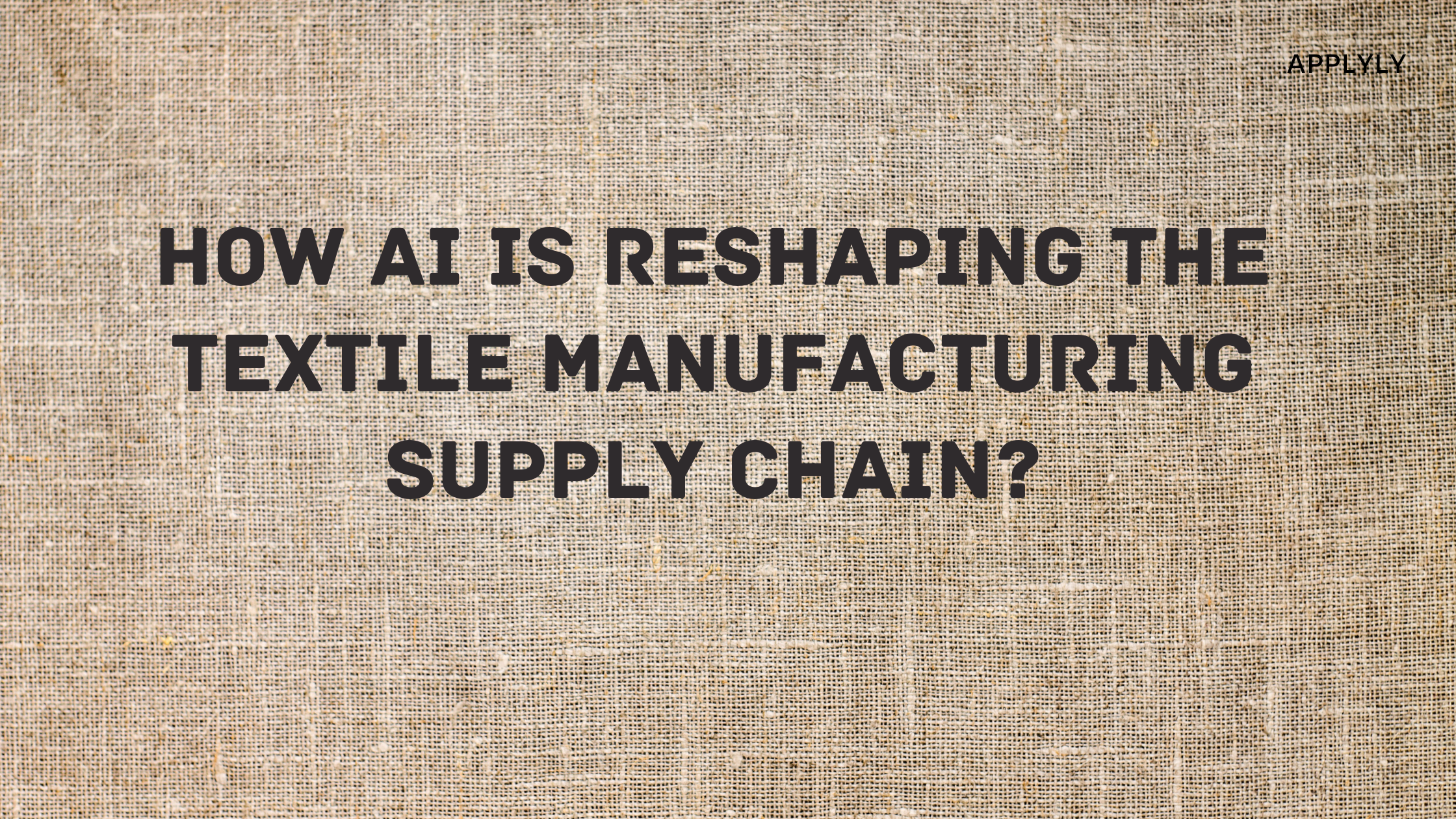How AI is Reshaping the Textile Manufacturing Supply Chain?
AI has come a long way in reshaping the textile industry by improving efficiency, precision, and eco-friendly practises. It enhances the existing manufacturing flow and optimises the supply chain techniques to meet the modern day requirements. Business sectors have appreciated the fact that AI has reshaped the Textile Manufacturing Supply Chain. AI accelerates growth and reduces possibilities of making mistakes.
Revolutionising Textile Production Through AI
AI allows identifying patterns in the production process with a high degree of accuracy thereby reducing the risk of mistakes. The current machine learning analysis picks out defects in textile patterns in real-time, thus avoiding substandard fabrics being used. This innovation corrects mistakes and enhances the existing experience with the product of the client.
The use of robotics and advanced AI in cutting sewing and dyeing tasks brings automation at its best. Another benefit realised by robotic systems is that they make perfect cuts, and minimise material waste. They also enhance the production of the goods enduring less time and other resources needed in the process.
Also, AI gives increased possibilities for product quality improvement since it aims at defining and achieving improved quality in production and adds to improved brand image worldwide. Business firms implementing these technologies emerge as winners in the market due to the production of excellent products throughout.
AI in Textile Manufacturing Supply Chain
Quality control sees remarkable improvements with AI-powered systems. Real-time defect detection using high-resolution cameras and sensors identifies issues swiftly. Early intervention prevents substandard products from reaching the market, protecting brand image.
AI automation reduces dependency on manual labour, enhancing efficiency. Tasks like stitching and colour-matching are performed with precision, minimising material wastage. This approach not only improves productivity but also ensures uniformity in output.
AI systems provide continuous feedback essential to addressing issues as they occur. Organisations can make specific changes to make their operations run effectively, giving customers quality goods.
Economies of Supply Chain through Data Analytics
AI optimises supply chain management by delivering actionable data insights. Predictive analytics help manufacturers maintain optimal inventory levels, preventing overproduction and stock shortages. These insights streamline operations and align production with market demands.
Customer behaviour analysis, powered by AI, enables brands to personalise experiences by understanding preferences and buying habits. This targeted approach strengthens loyalty and encourages repeat purchases.
AI also supports sustainability by optimising resource use. Eco-friendly processes, such as sustainable dyeing, conserve water and energy, advancing global environmental goals.
Sustainability and the Future of Textiles with AI
AI supports sustainable practices through resource-efficient production methods. Automated systems reduce waste while maintaining high output, advancing the industry’s green initiatives.
Sustainable dyeing and colour-matching play an important part in environmental stewardship involving AI. These innovations are an indication of the textile industry’s sustainable development.
Adoption of AI offers manufacturers with quality work, efficiency in their production processes and conservation of the environment. The textile manufacturing industry needs AI so that in the future it can be efficient and environmentally friendly.
Conclusion
With the help of AI the textile manufacturing Supply Chain industry can increase efficiency, accuracy, and environmental friendly production. It facilitates production, enhances quality, and promotes the supply chain processes at par with the contemporary trend. AI allows businesses to produce the right quality of products that are required, optimize them, reduce wastage while also being in harmony with their environmental agenda.
You can read more information related to Startup advise, AI and startup news here.
Thanks






